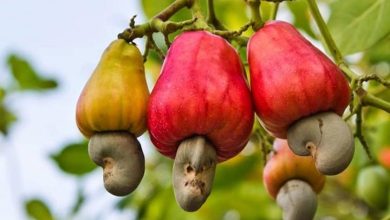Global glut hits Tanzania pigeon peas prices

DAR ES SALAAM: THE sharp fall in pigeon pea prices in Tanzania stems from a global slump triggered by abundant supply, according to the Tanzania Mercantile Exchange (TMX).
The exchange noted that international market dynamics, particularly India’s policy on duty-free imports, have played a decisive role in shaping local prices.
With New Delhi being the largest consumer of pigeon peas, its extended duty-free window has encouraged higher exports from East Africa and Canada, creating an oversupply that has weighed heavily on Tanzanian prices.
TMX Chief Executive Officer, Godfrey Malekano (pictured) told the `Daily News’ yesterday that despite lower prices, the Indian market remains a reliable export channel for Tanzanian farmers.
“Global supply has outpaced demand, and this has inevitably dragged prices down,” said Mr Malekano.
“For our farmers, the Indian market remains a lifeline, but the challenge is ensuring they get fair value despite international fluctuations.”
He cautioned that without coordinated marketing, storage strategies and domestic demand creation, local growers may continue to feel the pinch from global price volatility.
ALSO READ:TMX to start trading cashew nuts, pigeon peas this season
Global prices dropped sharply from 1.60 US dollars per kilogramme last year to between 0.60 and 0.75 US dollars currently, affecting local production of about 400,000 tonnes that had positioned Tanzania as the world’s second-largest producer.
“The country’s pigeon pea prices are largely constrained by limited domestic demand, unlike beans or groundnuts, which command better prices locally and are less dependent on export markets,” Mr Malekano said.
He added that the crop is one of the most volatile globally, relying heavily on a single buyer—India.
Locally, pigeon peas are sold around 2,000/- per kilo, above current global levels.
“To mitigate price fluctuations, protect farmers and avoid being mere price takers, we are planning to establish a storage facility to warehouse the crop during global surpluses and sell when demand is high,” he said.
India’s recent decision to extend duty-free pigeon pea imports to next March marks a major development in the global pulses market, aiming to address domestic supply shortages.
“The recent plunge in pigeon pea prices has affected not only local farmers but also export traders, who are struggling with lower prices in the Indian market, even as TMX quotes remain above Indian levels,” Mr Malekano said.
“We are gradually adjusting our prices in line with global market trends to prevent traders from exploiting farmers. Our focus is on ensuring fair value for producers while responding to international price movements.”
Tanzania Pulses Network (TPN) Executive Director Zirack Andrew said the sector faces downward price pressures due to high production in competing markets and persistent export costs.
“Although prices are depressed, Tanzanian pigeon peas remain expensive once they reach India. Government policies, the auction system, and export levies further raise costs, reducing export volumes as buyers opt for cheaper supplies from Mozambique and Malawi,” Mr Andrew said.
He noted that Mozambique currently supplies pigeon peas to India at roughly 500/- per kilo, which Tanzanian exporters struggle to match.
While farmers can earn around 1,000/- per kilo, additional collection fees and levies add 202/- plus a 3.0 per cent cess, pushing costs to 1,250/- per kilo before leaving warehouses in Bariadi, Simiyu region some 943km to Dar es Salaam via Dodoma.
Pigeon peas from Mtwara trade at 800/- per kilo, while other regions fetch 1,000/- and above, according to the latest TMX auction results.
The global supply outlook remains strong, with production forecasts from Kenya, Uganda, Tanzania and Mozambique suggesting healthy supply levels for the coming season.





